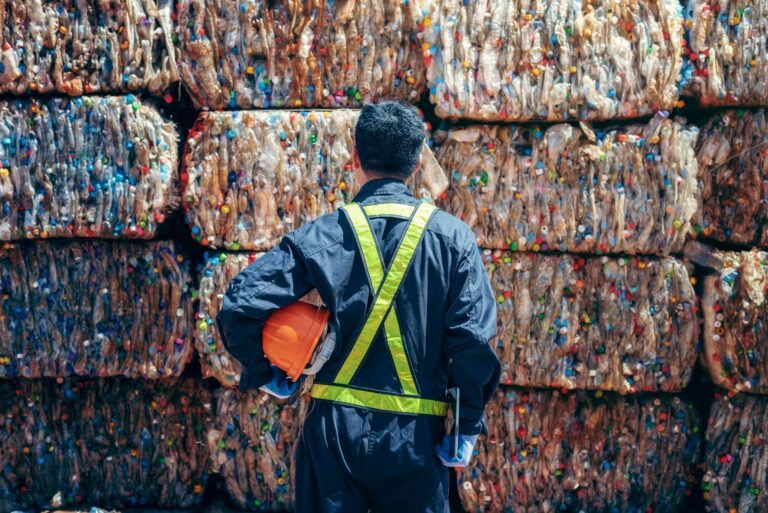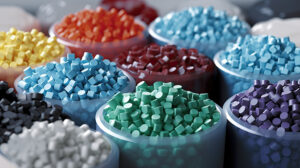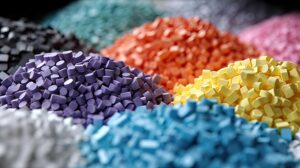One factor affecting plastic recycling is the presence of plastic additives. Plastic is one of the most widely used materials in the world, and recycling is one of the ways to reduce plastic waste, but it is more complex than it seems. Plastic recycling faces many challenges, such as the diversity of plastic types, the contamination of plastic waste, and the degradation of plastic quality.
What are plastic additives?
Plastic additives are substances added to plastics to improve their properties, such as durability, flexibility, color, and resistance to heat, light, and chemicals.
Some of the standard plastic additives are:
Stabilizers: Compounds prevent or slow down the degradation of plastics caused by exposure to heat, light, or oxygen. Examples of stabilizers are antioxidants, UV absorbers, and light stabilizers.
Plasticizers: Increase the flexibility and elasticity of plastics by reducing their intermolecular forces. Examples of plasticizers are phthalates, adipates, and citrates.
Fillers: Materials that are added to plastics to reduce their cost, increase their strength, or modify their appearance. Examples of fillers are calcium carbonate, talc, and glass fibers.
Pigments: Substances that give color to plastics or make them opaque. Examples of pigments are titanium dioxide, carbon black, and organic dyes.

Flame retardants: Compounds that reduce the flammability of plastics by interfering with the combustion process. Examples of flame retardants are brominated compounds, phosphorus compounds, and antimony oxide.
How do plastic additives affect recycling?
Plastic additives can have both positive and negative effects on recycling. Some additives can enhance the recyclability of plastics by improving their stability, compatibility, or processability.
For example:
Stabilizers can prevent or delay the degradation of plastics during recycling operations, such as sorting, washing, melting, and extruding. Stability is a critical property when it comes to recycling plastics. Some additives, such as antioxidants and stabilizers, are specifically designed to increase the resistance of plastics to degradation caused by heat, light, or oxidative reactions. By preserving the integrity of the plastic, these additives can extend the lifespan of the material, making it more suitable for recycling. This becomes especially important when dealing with plastics that have gone through multiple cycles of use, as they may have undergone degradation over time.
Plasticizers play a crucial role in improving the flow and molding properties of recycled plastics by reducing their viscosity and brittleness. These additives are designed to enhance the flexibility, workability, and processability of plastics, making them easier to mold and shape during recycling processes.
Fillers are additives commonly used in plastics to enhance their performance characteristics. They can increase recycled plastics’ bulk density and stiffness by filling the gaps and voids caused by repeated processing. When it comes to recycling plastics, fillers can play an important role in improving the bulk density and stiffness of recycled materials.
How can we reduce the impact of plastic additives on recycling?
There are several ways to reduce the impact of plastic additives on recycling, such as:
Designing for recycling: Choose plastic materials and additives compatible with each other and the recycling process. Use biodegradable or compostable additives, non-halogenated flame retardants, or easily removable pigments.
Improving sorting and separation: Develop more efficient and accurate methods to separate different types of plastics and additives from each other and other contaminants. Use near-infrared spectroscopy, magnetic density separation, or enzymatic degradation.
Enhancing recycling technologies: Develop more advanced and innovative techniques to process recycled plastics and additives without compromising their quality or performance. Use supercritical fluids, microwave heating, or nanocomposites.
Choose Plastic Additives from Phoenix Plastics
Aside from the general impact on recyclability, plastic additives play a multifaceted role in the lifecycle of plastic products. These additives are incorporated into plastics during the manufacturing process to enhance specific properties such as strength, flexibility, UV resistance, flame retardancy, coloration, and more. While these additives bring numerous benefits to plastic products, their presence can also create challenges in terms of recycling efficiency and effectiveness.
It is essential to consider the effects of plastic additives on recycling when designing, manufacturing, using, and disposing of plastic products. By doing so, we can reduce plastic waste and its environmental and health impacts while preserving the value and benefits of plastic materials. Turn to Phoenix Plastics for the right additives for your needs.





